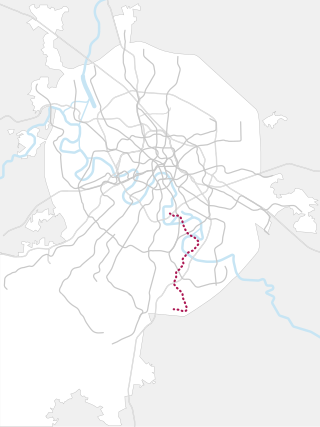
MegaFon, previously known as North-West GSM, is the second largest mobile phone operator and the third largest telecom operator in Russia. It works in the GSM, UMTS and LTE standard. The company serves 62.1 million subscribers in Russia and 1.6 million in Tajikistan. It is headquartered in Moscow.
Unitary enterprise A1 is the largest private telecom, ICT & content service provider in Belarus. The company provides GSM 900/1800, UMTS (WCDMA/HSDPA/HSUPA/HSPA+) and 4G services. A1 is the second-largest mobile network operator in Belarus. A1 also provides ADSL, Ethernet and GPON Internet access services in all regional centers of Belarus, as well as in Babrujsk, Žlobin, Rečyca, Svietlahorsk and Dobruš, and IPTV digital television services under the VOKA brand. Until August 2019, the company conducted operations under the brand name velcom.

1C Company is a Russian software developer, distributor and publisher based in Moscow. It develops, manufactures, licenses, supports and sells computer software, related services and video games.
Rutube, stylized as RUTUBE, is a Russian video platform. It includes a library of licensed content including movies, series, cartoons, shows, and live broadcasts. It also hosts blogs, podcasts, video game streams, and educational content.

The Nekrasovskaya line is the fifteenth metro line of the Moscow Metro. The first segment, between Kosino and Nekrasovka, was opened on 3 June 2019. The second segment was opened on 27 March 2020. City officials expect it to relieve passenger traffic on the Tagansko-Krasnopresnenskaya line once completed.

Rumyantsevo is the station on the Moscow Metro's Sokolnicheskaya Line between Troparyovo and Salaryevo. It was the 199th station on the Metro when it opened on January 18, 2016. Rumyantsevo served as the terminus of the line until Salaryevo opened on 15 February 2016.

Rasskazovka is a station on the Kalininsko-Solntsevskaya line of the Moscow Metro. It opened on August 30, 2018 as part of the "Ramenki" - "Rasskazovka" extension.

Savyolovskaya is a station on the Bolshaya Koltsevaya line of the Moscow Metro. It opened on 30 December 2018. Until December 2020, this station also served as the terminus of Solntsevskaya line.

My World@Mail.Ru is a social networking service which is a part of Mail.ru portal.

Sergey Aslanyan is a Russian businessman and executive manager. He is the founder and Chairman of the Board at MaximaTelecom.

CSKA is a station on the Bolshaya Koltsevaya line of the Moscow Metro. It opened on 26 February 2018 as one of five initial stations on the new line.

Lukhmanovskaya is a station on the Nekrasovskaya line of the Moscow Metro. It was opened on 3 June 2019 as a part of the inaugural stretch of the line, between Kosino and Nekrasovka.

Michurinsky Prospekt is a Moscow Metro station of the Bolshaya Koltsevaya line. It was opened on 7 December 2021 as part of the section between Mnyovniki and Kakhovskaya. A transfer to Michurinsky Prospekt is opened on 7 December 2021.

Rublyovo-Arkhangelskaya line or Line 17 of the Moscow Metro is currently under construction. It began in 2021 and will end after 2028, opening in two phases. Phase 1 is scheduled to be completed by 2026-2027 completing the section from Delevoy Tsentr to Lipovaya Roscha station and phase two is scheduled to open after 2028 expanding the line from Lipovaya Roscha to Ilyinskaya station. In the future it will be connected with Biryulyovskaya line.

Biryulyovskaya line or Line 18 of the Moscow Metro is a line under construction since 2021 which is scheduled to end in 2027. In the future, it will be connected with Rublyovo-Arkhangelskaya line.

Kornilovskaya is a station on the Troitskaya line of the Moscow Metro which is currently under construction. It will open in 2024. Before October 2021 it was known as Mamyri (Russian: Мамыри. The new name was given after Admiral Kornilov Street nearby.

Tyutchevskaya is a station on the Troitskaya line of the Moscow Metro which is currently under construction. It will open in 2024.

Sokolniki is a station on the Bolshaya Koltsevaya line of the Moscow Metro. A transfer to Sokolniki is planned. It was opened on 1 March 2023.
The Service-Telecom Group of Companies is an independent wireless telecommunication infrastructure operator that constructs and leases antenna-mast structures (AMS) to place telecom equipment.

Maryina Roshcha is a station on the Bolshaya Koltsevaya line of the Moscow Metro, in the Maryina Roshcha District, between the station Savyolovskaya and station Rizhskaya. A transfer to the Lyublinsko–Dmitrovskaya line, via its Maryina Roshcha station, is planned. The construction of a new railway station is also planned to allow for transfers to Line D2 of the Moscow Central Diameters.

















